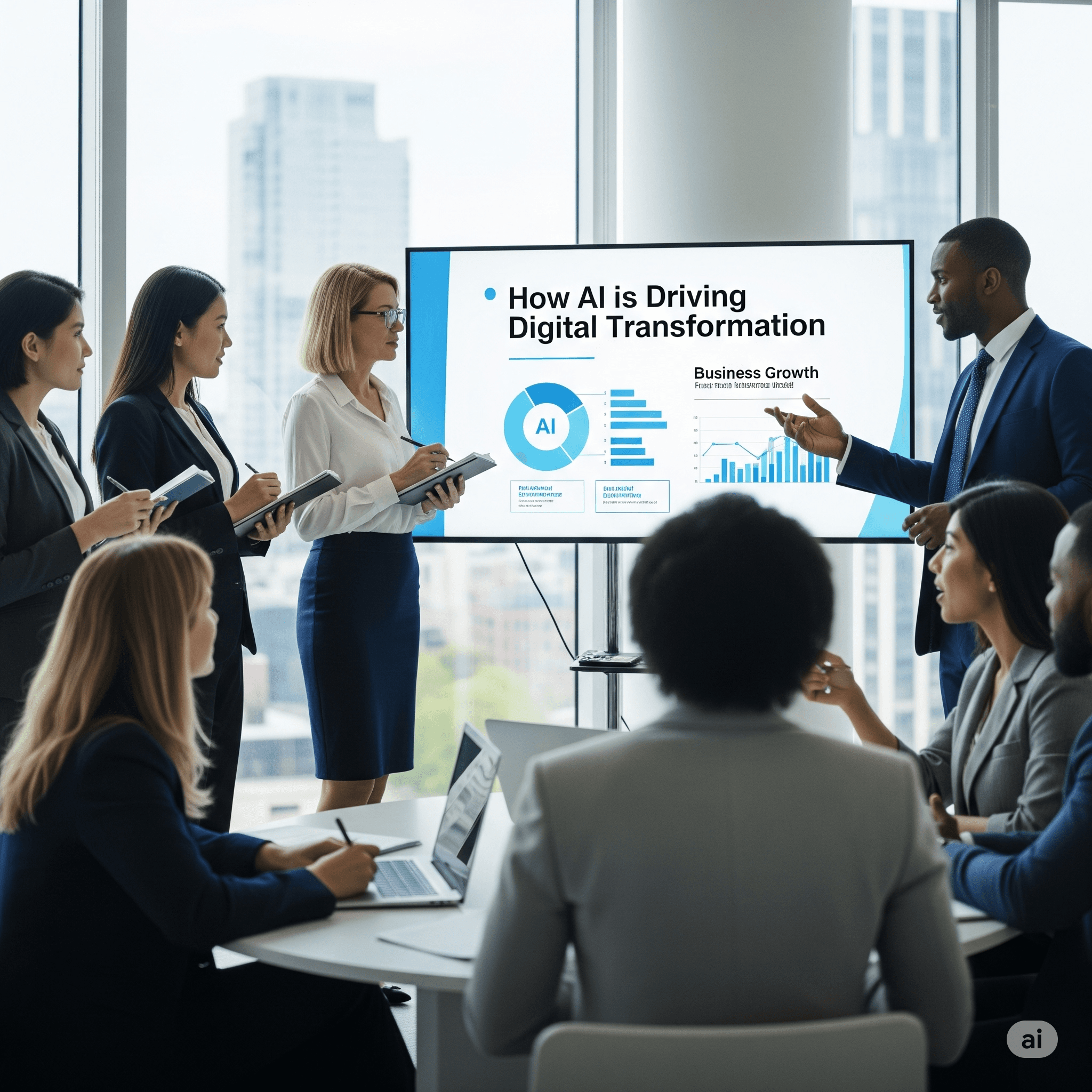How AI is Driving Digital Transformation
Learn how artificial intelligence is catalyzing digital transformation by automating processes, enhancing decision-making, and enabling innovative business models.

Introduction
The Role of AI in Accelerating Digital Transformation
AI technologies such as machine learning, natural language processing, and robotic process automation are transforming traditional business processes and enabling new digital capabilities across industries.

Market Growth and AI Adoption
AI adoption is accelerating as organizations recognize its potential to drive operational efficiency, enhance customer experiences, and foster innovation.
- Automated workflows and process optimization
- Advanced data analytics and predictive modeling
- Intelligent virtual assistants and chatbots
- Enhanced customer personalization
- Innovative product and service development
Key AI Technologies Powering Digital Transformation
Core AI technologies such as deep learning, NLP, and computer vision enable automation, advanced analytics, and interactive user experiences driving digital transformation.
| AI Technology | Description | Business Impact |
|---|---|---|
| Deep Learning | Neural network-based models enabling complex pattern recognition | Improves decision-making with high accuracy |
| Natural Language Processing | Enables machines to understand and respond to human language | Enhances customer interaction and automation |
| Computer Vision | Allows machines to interpret visual data | Enables automated inspection and monitoring |
Real-World AI Digital Transformation Use Cases
Organizations across sectors are implementing AI-driven digital transformation initiatives, resulting in higher productivity, better customer insights, and new business models.

- Automated customer service and support
- Predictive maintenance in manufacturing
- Fraud detection in finance
- Personalized marketing campaigns
- AI-driven research and development
Challenges and Considerations in AI Digital Transformation
While AI offers transformative benefits, organizations must address challenges including data privacy, technology integration, and workforce adaptation to realize its full potential.
Risks and Mitigations
Implementing responsible AI practices and change management strategies is essential to mitigate risks and ensure successful digital transformation.
Future Outlook for AI and Digital Transformation
The future will see deeper AI integration across business functions, increased automation, and expansion of AI-powered innovations driving continuous digital transformation.
- Expansion of AI-powered automation
- Increased use of explainable AI
- Growth in AI-driven decision support
- Broader adoption of AI ethics frameworks
- Emergence of AI in new business models
Implementation Best Practices and Strategies
Successful AI-driven digital transformation requires strategic vision, investment in skills, robust data governance, and continuous innovation management.
Conclusion
AI is a transformative force accelerating digital transformation, enabling organizations to innovate, optimize operations, and stay competitive in a rapidly changing digital landscape.
Reading Progress
0% completed
Article Insights
Share Article
Quick Actions
Stay Updated
Join 12k+ readers worldwide
Get the latest insights, tutorials, and industry news delivered straight to your inbox. No spam, just quality content.
Unsubscribe at any time. No spam, ever. 🚀
